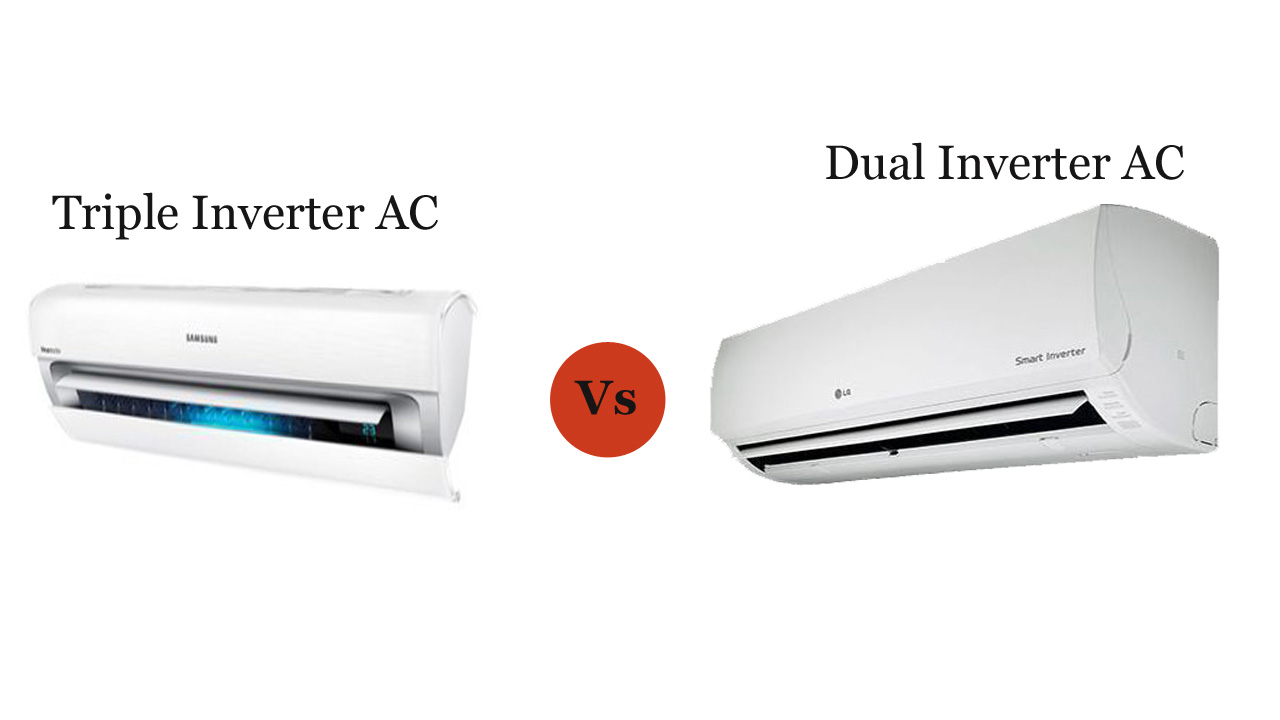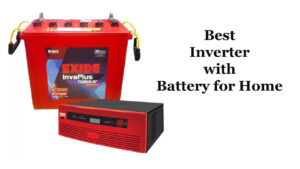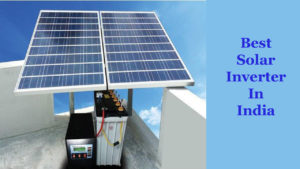What exactly is a triple converter AC?
A triple inverter air conditioner is a form of air conditioner that controls the compressor motor speed with three inverters. With the use of inverter technology, the compressor can adjust its speed in response to the amount of cooling required, using less energy and maintaining temperatures more precisely.
Three inverters The three inverters on an AC work together to deliver effective and consistent cooling. The first inverter regulates the compressor engine speed, the second regulates the outdoor fan speed, and the third regulates the indoor fan speed. As a result, the air conditioner may operate at different speeds and adapt to the room’s cooling requirements, which saves energy and creates a more comfortable environment.
Triple inverter air conditioners are renowned for their energy efficiency and can save up to 50% more energy than a standard air conditioner. They also offer faster cooling and improved temperature regulation, with fewer temperature fluctuations. Some triple inverter air conditioners also include features like air purification, humidity control, and smart connectivity, which allows users to manage the AC with their cell phones or voice assistants.
However, triple inverter air conditioners can be more costly than standard air conditioners and more expensive to install and maintain. Before purchasing a triple inverter air conditioner, consider variables such as room size, usage patterns, and budget.
Furthermore, triple inverter air conditioners are quieter than conventional air conditioners due to the use of advanced technology and fewer vibrations. As a result, they are appropriate for use in bedrooms and other quiet places. They also have a longer lifespan than standard air conditioners due to less wear and strain on the compressor motor.
One drawback of triple inverter air conditioners is that they may require a higher starting expenditure than standard air conditioners. However, the longer-term energy bill savings can more than offset the greater cost due to the energy savings. Furthermore, the installation and upkeep of triple inverter air conditioners may necessitate specialized skills and equipment, increasing the total cost.
Overall, triple inverter air conditioners are an excellent option for those seeking energy-efficient, high-performance air conditioning. Because they offer improved temperature control, energy savings, and more functions, they are popular for homes and offices.
Another benefit of triple inverter air conditioners is their ability to work in extreme temperatures. They can operate effectively even in high outdoor temperatures, making them ideal for use in hot and humid climates. The use of three inverters also allows the AC to adjust the cooling capacity and compressor motor speed to match the cooling demand and outside temperature.
Furthermore, triple inverter air conditioners are more ecologically friendly than traditional ones because they use less energy and emit fewer greenhouse gases. As a result, they are an excellent option for those looking to reduce their carbon imprint and contribute to cleaner surroundings.
It is essential to note that triple inverter air conditioners’ performance and energy efficiency can vary based on area size, insulation, usage patterns, and temperature settings. To optimize energy efficiency, choose an air conditioner with the appropriate cooling ability for the room size and use it judiciously. Regular AC maintenance and cleaning are also required to guarantee peak performance and longevity.
What exactly is Dual Inverter AC?
A Dual Inverter AC is another form of air conditioner that controls the compressor motor speed with inverter technology. Like a triple inverter AC, a dual inverter AC adjusts the compressor motor speed based on cooling demand, resulting in energy savings and precise temperature regulation.
A dual inverter air conditioner and a triple inverter air conditioner are primarily distinguished by the number of inverters used to regulate the compressor motor speed. A dual inverter air conditioner employs two inverters to regulate the compressor motor speed, whereas a triple inverter air conditioner employs three inverters.
Two inverters The two inverters on an AC work together to deliver reliable and effective cooling. The compressor engine speed is controlled by one inverter, while the fan speed is controlled by the other. As a result, the air conditioner may operate at different speeds and adapt to the room’s cooling requirements, which saves energy and creates a more comfortable environment.
Dual inverter air conditioners are renowned for their high energy efficiency and can save up to 30% more energy than a standard air conditioner. They also offer faster cooling and improved temperature regulation, with fewer temperature fluctuations. In addition, some dual inverter air conditioners include extra features like air purification, humidity oversight, and smart connectivity, which allows users to manage the AC with their cell phones or voice assistants.
One disadvantage of dual inverter air conditioners is that they may be more costly than conventional air conditioners and more expensive to install and maintain. However, as with triple inverter air conditioners, the energy savings over time can balance the higher cost, resulting in long-term energy bill savings.
Dual inverter air conditioners are excellent options for those seeking an energy-efficient, high-performance air cooling solution. Because they offer improved temperature control, energy savings, and more functions, they are popular for homes and offices.
Another benefit of dual inverter air conditioners is their quiet operation. They are quieter than traditional air conditioners because they use sophisticated technology and have fewer vibrations. As a result, they are ideal for use in bedrooms and other calm areas.
Dual inverter air conditioners also have a longer lifespan than conventional air conditioners due to less wear and strain on the compressor motor. This is because inverter technology is used, which results in less mechanical stress and greater temperature control.
It is essential to remember that dual inverter air conditioners’ performance and energy efficiency can vary depending on room size, insulation, usage patterns, and temperature settings. To optimize energy efficiency, choose an air conditioner with the appropriate cooling capacity for the room size and use it judiciously. Regular AC maintenance and cleaning are also required to guarantee peak performance and longevity.
There are a few important differences between Triple Inverter and Dual Inverter AC that buyers should be aware of:
Compressor Motor Speed Control: The number of inverters used to regulate the compressor motor’s speed is the main difference between the two. A triple inverter air conditioner has three inverters that can adjust the compressor motor speed based on the cooling requirement, whereas a dual inverter air conditioner has two inverters. This enables triple inverter air conditioners to be even more energy efficient and provide more precise temperature management.
Energy Efficiency: Compared to conventional air conditioners, triple and dual-inverter air conditioners are more energy effective. When compared to a standard air conditioner, triple inverter air conditioners can save up to 50% of the electricity, while dual inverter air conditioners can save up to 30%. Actual energy savings will vary depending on various variables such as room size, insulation, usage patterns, and temperature settings.
Cost: Due to the additional inverter, triple inverter air conditioners are usually more expensive than dual inverter air conditioners. The higher initial expenditure, however, can be offset by the energy savings over time.
Noise: Both triple and dual converter air conditioners are quieter than standard air conditioners. Triple inverter ACs, on the other hand, are usually quieter due to the use of advanced technology and fewer vibrations.
Lifespan: Triple and dual inverter air conditioners have a longer lifespan than traditional air conditioners due to less wear and strain on the compressor motor. On the other hand, triple inverter air conditioners may have a slightly longer lifespan due to the extra inverter, which results in even less mechanical stress on the compressor motor.
Overall, triple inverter air conditioners outperform dual inverter air conditioners regarding energy economy and temperature control. On the other hand, dual inverter air conditioners are still an excellent choice for those looking for an energy-efficient, high-performance air conditioning solution, particularly if money is an issue. Finally, the individual’s needs, preferences, and budget will determine the best choice.
The cooling capacity is another element when comparing triple inverter vs. dual inverter air conditioners. Triple inverter air conditioners generally have greater cooling capacity than dual inverter air conditioners, allowing them to cool bigger rooms more efficiently. Therefore, a triple inverter AC may be better if you have a large room or reside in a hot and humid climate.
On the other hand, if you live in a milder area or have a small space, a twin inverter AC can be plenty to meet your cooling demands. Choose an air conditioner with the appropriate conditioning capacity for your room size to ensure optimum performance and energy efficiency.
Another benefit of triple inverter air conditioners is that they can keep a consistent degree even in harsh weather situations. As a result, they can operate efficiently even in warm weather, providing cool and cosy indoor spaces. On the other hand, dual inverter air conditioners may struggle to keep the desired temperature during severe weather conditions.
Eventually, removal of moisture, and smart connectivity are all characteristics of triple inverter and dual inverter air conditioners. You should select an air conditioner with features that best serve your requirements and lifestyle.
Consider cooling capacity, energy efficiency, cost, noise level, lifespan, and the specific requirements of your living space when deciding between triple inverter and dual inverter air conditioners. To make an informed choice, conducting extensive research and consulting with a professional is critical.
Conclusion
Finally, both triple inverter and dual inverter air conditioners provide several benefits over traditional air moisturizers, like energy efficiency, temperature control, and quiet function. Triple inverter ACs provide improved energy efficiency as well as temp control, making them a more advanced and dependable choice, particularly in areas with unstable power supplies. They are, however, more expensive than dual converter ACs. Individual requirements, preferences, and budget will ultimately determine the chosen option.



